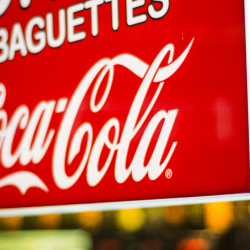The Bumble fumble
Last month, Bumble released a campaign targeting women’s vows of celibacy with slogans like ‘You know full well a vow of celibacy is not the answer’ and ‘Thou shalt not give up on dating and become a nun.’ The tone was supposed to be playful, borrowing from Gen Z’s humour, to poke fun at women’s wish to reevaluate their relationships with men.
The campaign was instead perceived as condescending, controlling, and mocking of women’s efforts to regain agency over their bodies. Bumble attempted to capitalise on vows of celibacy, an increasingly popular movement, as demonstrated by Julia Fox’s vocal stance and the hashtag #celibacy garnering over 165 million views on TikTok.
But celibacy, or ‘#boysober’, is far from a fad. It is a serious political decision about reclaiming one’s agency over their body and questioning societal expectations around sex.

The movement helps women understand their relationships and sexuality, in a world where many feel pressured to offer their bodies, with about one in three women saying they’ve been pressured to have sex on a date. ‘For the first time ever, I just feel like I have ownership over my body,’ says a young woman discussing the boysober movement with the NY Times.
By making fun of the vow of celibacy, the campaign trivialised a political symbol: women reclaiming ownership over their bodies. As an app created by a woman to prioritise women’s experiences, this misstep left a particularly bitter impression on its consumers.
Many described the move as bold marketing, but bold marketing isn’t about disrespecting your user base. This was misinformed marketing — Bumble tried to capitalise on a trend without understanding its actual meaning.
Bud Light’s performative allyship
Brands aware that progressive stances can be profitable sometimes try to capitalise on political symbols, only to face backlash. A prime example is Bud Light’s use of Dylan Mulvaney, a trans woman, in an April 2023 sponsored post where she posed with a personalised crate the brand sent her. Bud Light quickly backtracked following conservative outrage.
Conservative celebrities like Travis Tritt and Kid Rock condemned the brand and urged their fans to boycott the beverage, with Kid Rock even shooting a crate of the lager with an assault rifle.

As a result of the boycott, the share price of Bud Light’s parent company, Anheuser-Busch InBev, declined significantly. The brand issued an apology with Brendan Whitworth, CEO of Anheuser-Busch InBev stating, ‘We never intended to be part of a discussion that divides people. We are in the business of bringing people together over a beer.’
Bud Light’s move could have been a refreshing step further than the usual rainbow-washing brands do to appear progressive, without risking much. However, the backtrack showed that Bud Light was willing to use Dylan’s image to gain a new consumer base, but was not ready to commit to the political staple that Dylan represented. The brand did not defend her, instead quickly dissociating from her.
The pitfalls of superficial political marketing
In 2024, brands are aware that aligning their politics with consumers’ values is an effective way to build a solid consumer base, especially among younger generations. This strategy became obvious during movements like BLM after George Floyd’s murder and the annual pride flag-themed branding each June. But consumers are not oblivious to corporations conveniently aligning with political views. Painting a company’s logo with rainbows or posting an inspirational quote on Memorial Day is easy; standing up with marginalised groups despite backlash is the hardest but most essential part of true political engagement.
Political positioning has become a trend for brands — a safe signal to attract consumers rather than a genuine stance. This trend results in superficial engagement, reducing significant political issues to mere marketing tools aimed at capturing Gen Z consumers, 58% of whom condemn a brand’s silence on societal issues. Consumers quickly recognise inauthentic brands and are tired of empty gestures.
Politics is by definition about choosing sides and understanding the values of the group you represent. It involves elevating those values rather than trivialising them. Claiming to ‘never intend to be part of a discussion that divides people’ or mocking something your group values is not meaningful engagement.
A recent example that goes against superficial political marketing is Kellogg’s ‘Special for a Reason’ campaign. Last month, influencer Molly Baz had her Times Square billboard ad taken down for showing her pregnant belly deemed ‘inappropriate.’ While ‘sexy’ images of women are common in ads, pregnant women get censored. Special K responded by putting Molly on their cereal boxes, a bold move that got them a ton of praise.
Ultimately, those who take a stance and stick to it will inevitably encounter hurdles, but they will be the ones who leave a lasting impact on our cultural landscape and help shape our societal progress. Isn’t it worth the price?
Featured image: freestocks / Unsplash
































